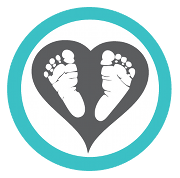 Some feasting cautions:
Some feasting cautions:- Turkey and stuffing. Undercooked, that is. So make sure the turkey is cooked to an internal temperature of 180 degrees F to kill off harmful bacteria.
- Anything unpasteurized. Be it cider or soft cheeses (like brie), unpasteurized food may carry E. coli or listeria. There is a long list of soft, semi-soft and blue-veined cheese to pass: Brie, Camembert, goat cheese, Limburger, Montrachet, Neufchâtel, Pont L’Evêque, Mexican-style cheeses like queso fresco, Asiago, Bel Paese, bleu, brick, Gorgonzola, Havarti, Muenster, Port Salut, Taleggio, and Roquefort.
- Smoked meats and meat spreads. The refrigerated versions may contain listeria. Examples include pâté, or smoked meats such as smoked salmon. Opt for the canned version.
- Sushi. Nothing raw, please.
- Eggnog. The homemade version is usually made with unpasteurized egg and alcohol. If you must, check that the egg used in pasteurized, or go for the “soy eggnog” and virgin version. (Source: http://www.blisstree.com/articles/thanksgiving-foods-to-avoid-when-pregnant-364/)
Some healthy tips:
- Don't go to the Thanksgiving dinner hungry: we often eat faster and more when we are hungry - therefore eat a wholesome breakfast and lunch on the day to avoid overeating at dinner time.
- Thanksgiving dinner is not an all-you-can-eat buffet: Fill your plate half with vegetables, one quarter with a lean meat and the rest with a starch of your choice. Eat slowly and stop when you are full.
- Turkey - go skinless: choose your 4-oz turkey portion skinless to slash away some fat and cholesterol. Save your appetite for the side dishes and desserts.
- Side Dishes - watch your portion size: go for smaller portions. This way you can sample all the different foods. Moderation is always the key.
- Make a conscious choice to limit high fat items: high fat food items can be found in fried and creamy dishes as well as cheese-filled casseroles in a traditional Thanksgiving meal . For instance, mashed potatoes are usually made with butter and milk; green bean casseroles are often prepared with cream of mushroom soup, cheese and milk and topped with fried onions; candied yams are loaded with cream, sugar and marshmallows. If you cannot control the ingredients that go in to a dish, simply limit yourself to a smaller helping size. Again moderation is the key.
- Drink plenty of water: alcohol and coffee can dehydrate your body. Drink calorie-free water to help fill up your stomach and keep you hydrated. (source: http://www.healthcastle.com/holiday-eating-healthy-thanksgiving.shtml)
From eMedicine (WebMD):
Should certain foods be avoided during pregnancy?
Food concerns during pregnancy include raw vegetables, unpasteurized juices, liver, and undercooked meat, poultry, or eggs. Be aware of food poisoning. Raw vegetables, unpasteurized juices, and undercooked meat, poultry, or eggs have been linked with Salmonella species and Escherichia coli (including the dangerous E coli 0157).
Cooking properly kills bacteria; the proper temperature can be determined by a meat thermometer, although cooking until well done is safe for most meat. Ground beef should be cooked to at least 160°F, roasts and steaks to 145°F, and whole poultry to 180°F. Eggs should have a firm yolk and white after cooking. Eggnog and hollandaise sauce have raw or partially cooked eggs and are not considered safe. Liver can contain extremely high levels of vitamin A and is probably safe, but it should be eaten in moderation.
In 2007, the FDA warned that Salmonella can be found on the outer skin and shell surfaces of small pet turtles and cautioned those handling turtles without properly washing their hands after handling the animals.
Mad cow disease, Bovine spongiform encephalopathy, has become a growing concern. The disease can be transmitted to humans who eat infected meat, causing Creutzfeldt-Jakob disease. The chances of contracting this disease in the United States is relatively small, but chances can be reduced even further by choosing cuts of meat that are likely to be free of nervous system tissue such as boneless steaks, chops, and roasts. Grass-fed and organic cattle should not have been exposed to any animal products in their feed and are considered to have no known risk. The risk of mad cow disease cannot be lowered by cooking beef more thoroughly because the prions that cause mad cow disease are not destroyed by heat.
Read more on this subject at
http://pregnancy.about.com/od/nutritioninpregn/a/thanksgiving.-KIq.htm

 Some feasting cautions:
Some feasting cautions:






















No comments:
Post a Comment
This blog only reviews comments before posting to avoid hijacking. We will respond to comments Mon-Thurs but we are closed Fri-Sun and legal holidays.